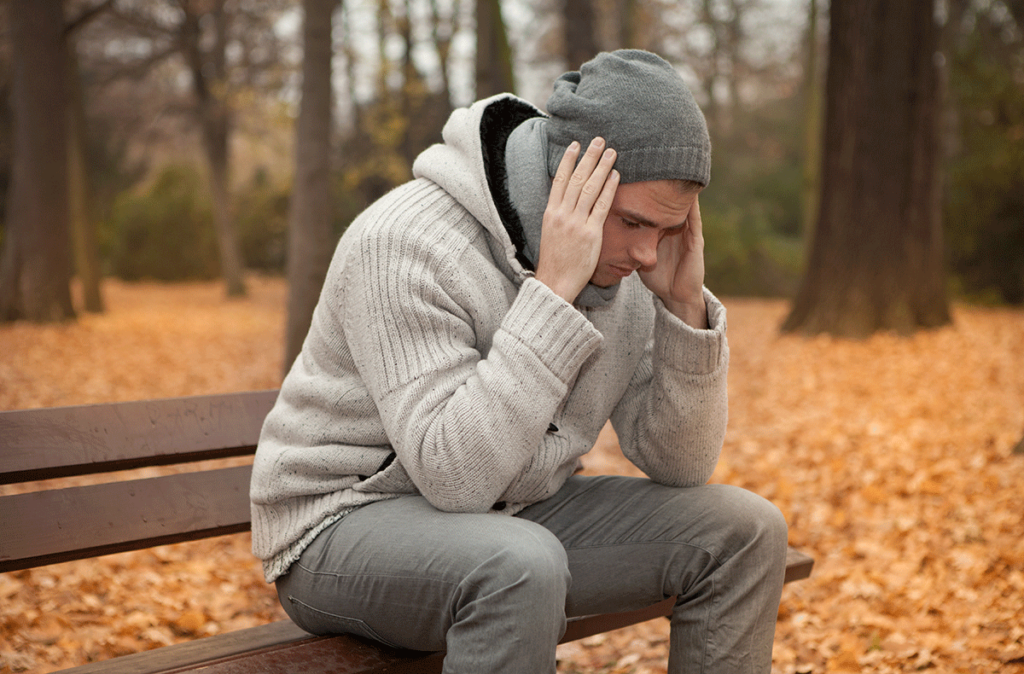Bipolar disorder is a complex mental health condition that can severely impact your way of life if you don’t receive the necessary assistance. At Promises, we offer mental health treatment programs to provide the care you need and answer questions like “Do seasons affect bipolar disorder?” so you can be ready to better manage your mental health going forward. Learn more today by calling 844.875.5609.
What Is Bipolar Disorder?
Bipolar disorder is a serious mental health concern characterized by severe shifts in mood, ranging from highs (known as manic episodes) to lows (called depressive episodes). These episodes affect how you feel, think, and even sleep.
Manic episodes often include symptoms such as:
- Fast speech
- Racing thoughts
- Euphoria
- Excessive energy
- Insomnia
- Impulsivity
Depressive episodes, on the other hand, involve symptoms that include the following:
- Lack of interest in activities
- Thoughts of suicide
- Changes in appetite
- Trouble concentrating
- Forgetfulness
- Fatigue
- Feeling low
The National Library of Medicine states that bipolar disorder affects between 1% and 3% of the world’s population.
Seasons and BPD
Do seasons affect bipolar disorder? The answer isn’t as cut and dry as you may think. It’s not so much the seasons in general that affect those with bipolar disorder as much as it is the changes in sunlight throughout the seasons.
A part of the brain known as the suprachiasmatic nucleus controls your circadian rhythm by detecting sunlight levels, triggering processes that relate to sleep, hunger, and body temperature, among many others. People with bipolar disorder have an altered circadian rhythm that is sensitive to sunlight changes and anything that can alter that rhythm, including traveling between time zones.
When sunlight exposure is at its highest during the spring and summer months, people with bipolar disorder are more likely to suffer manic episodes. On the other hand, their depressive episodes are shown to worsen during the winter months due to the natural lack of sunlight.
Temperature changes can also play a role in how seasons affect those with bipolar disorder. According to the National Library of Medicine, there are spikes in the number of people who are admitted to emergency psychiatric wards when temperatures are high.
Treating Bipolar Disorder Symptoms During Seasonal Changes
To manage the symptoms that can arise during seasonal changes, especially during the winter and summer months, sticking to a consistent sleep cycle is one of the most crucial things you can do, as it can help readjust your circadian rhythm so that your symptoms are less severe.
Getting help for bipolar disorder usually means turning to therapists who can guide you through the process of understanding the condition and learning to recognize your triggers and symptoms. For most, it also involves the addition of medications to help keep your manic and depressive episodes at manageable levels.
You can choose from inpatient treatment programs if you want to delve fully into the process of healing, or you can opt for outpatient services that allow you to keep up with your work and family responsibilities.
Turn to Promises for Mental Health Treatment
Living with bipolar disorder requires the right treatment. At Promises, we offer treatment programs that range from inpatient to outpatient services to help you get the exact level of care you need. We work with medical professionals to be able to offer medications as well as therapy, combining the two to guide you to a healthier you.
When you turn to the treatment programs at Promises for guidance regarding your mental health concerns, you will have individual therapy as well as group therapy sessions, providing a chance to learn how to interact with others in healthier ways and to see that you aren’t alone with the struggles you face.
You don’t have to struggle with bipolar disorder on your own. Turn to Promises today by calling 844.875.5609 to learn more about the link between the seasons and BPD, as well as the treatment options we offer.

